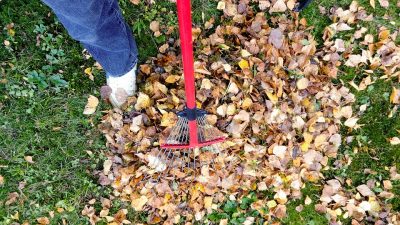By: Nellie Lazar
Fall is in full swing, and I don’t know about you, but before I can even start to think about the holidays, I need to get a grasp on my home maintenance list. A bulk of what we need to do to keep our homes safe and energy efficient can be done right now. Once I tackle this list, I feel like I can enjoy the holiday season free of some of the home keeping stress, at least. These practical tips will also serve you in the event you decide to sell your home. Most of the items we see come up on home and termite inspections can be prevented by exercising good home maintenance. Here are a few of our suggestions!
- Install carbon monoxide detectors: CO alarms should be installed outside each sleeping area and on every level of the home. A detector could save the lives of everyone in your home in the event of a malfunctioning furnace, hot water heater, stove, room heater or fireplace. Or, install dual smoke/co2 detectors.
- Test your smoke detectors. Make sure you have smoke alarms inside each bedroom, outside each sleeping area and on every level of the home. If they are battery-powered, change the batteries, too.
- Reverse your ceiling fans. Warm air rises, so switching your fan’s blades so they run in a clockwise direction after you turn on your heat will push warm air back down into the room. (Fans should run counterclockwise in the summer months.) In the winter, changing the direction of your blades can save on heating costs, especially in rooms with high or vaulted ceilings.
- Caulk around windows and doors. Caulk doesn’t cost a lot, but can make a real difference in terms of energy savings throughout your home
- Divert water away from your home. It’s easy to add extensions to your home’s downspouts so that water runs at least three to four feet away from your home. Doing so can prevent too much water from pooling near your foundation and entering your home. Deterioration at the exterior base of the home is a common finding in home and pest inspections.
- Check windows and doors. This is one of the easiest ways to save on winter energy bills and keep your house from getting cold. Make sure there are not cracks, leaks, or air coming through the window sills or door frames.
- Clean you heating and air conditioning. Having your air conditioner and heater units cleaned twice a year- spring and fall- will help your family stay healthier and expand the life of your units. A professional cleaning is inexpensive and takes a very short amount of time.
- Inspect your fireplace. Many people still use wood burning or gas fireplaces in the winter. Do a visual inspection of your fireplace to make sure that it is in good working order. Give it a test run at some point in the fall, before it gets too cold, to make sure that it will be functioning in the winter. Having a professional cleaning occasionally is a must.
- Clean your water heater. You can clean your water heater by simply draining it. Allow all the water in the tank to come out. This will get rid of any buildup that is in the heater due to sediment and will help prevent it from building up during the winter.
- Protect your hose. To keep your garden hose from freezing and cracking empty it completely and disconnect it from the spigot. Moving it inside is also a good idea to help prevent your hose from freezing and getting destroyed.
- Check your roof. When checking your home, it is important to start from the bottom up. Look at your roof- even from the ground- and see if there are any missing shingles or holes in the roof. Make certain your gutters are clear of leaves, sticks and debris. So many people don’t do this and it’s one of the most common items to come up on a home inspection …water damage from overloaded gutters and clogged downspouts.
- Clean out the garage. Make sure that any unused gas in equipment is removed and stored properly. Allowing the gas to sit in the fuel tanks can cause sediment in the tank and can potentially ruin the equipment. Since it may be out of use for months, fall is a good time to do this.
- Clean the dryer vents. Excess lent can pose a fire risk. Additionally, make sure the vent isn’t compressed, as this can restrict the flow and be hazardous.
- Conduct a thorough cleaning. Let in some fresh air by opening all your windows and take the time to dust your ceiling fans and blinds, and wash your window screens. If you’re not already replacing your air filters every three months do it now.
- The exterior needs some love, too. After the Summer dust and before the Winter rains, wash your windows and power wash the walls and walk-ways, as well as trim up trees and shrubs. Don’t forget to re-seed your lawn. After a long hot Summer, it can use some TLC. Also, seeding your lawn will ensure you have a beautiful green turf in the Spring.
